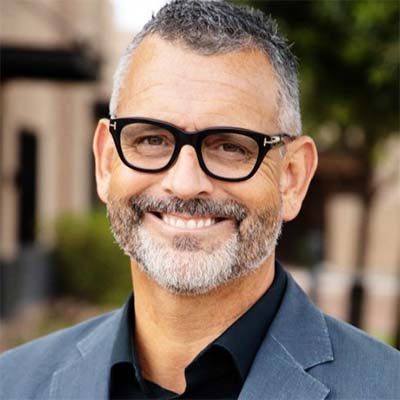When you’re trying to determine whether skilled nursing home care in Washington is the best choice for your loved one, you may not realize there are other options available. Encore Communities is proud to offer long-term care for seniors in the form of assisted living, independent living, home health, memory care, and skilled nursing home care.
Many people consider assisted living and skilled nursing home care to be the same thing – a nursing home. But there are differences between these two types of care and understanding the nuances between the levels of care is important to make the best decision for your family.
Let’s explore the differences between these two types of long-term care so that you can make an informed decision about what’s best for your loved one.
Assisted Living Facility Defined
An assisted living facility is a residential facility that provides support and assistance to aging adults who may need help with daily activities such as getting dressed, eating, and taking medications. The use of assisted living facilities is growing rapidly due to the increasing demand from seniors and other individuals who need assistance but also do not want to sacrifice their independence.
Assisted living facilities provide many benefits for seniors. These types of facilities often offer specialized care services – such as physical therapy, occupational therapy, speech-language pathology, and social work services – and some even give residents access to timely virtual healthcare.
They also offer social and recreational activities and other services to help seniors stay connected with their communities. These facilities are designed to promote independent living while providing a safe and secure environment for your loved one.
Skilled Nursing Facility Defined
Skilled nursing facilities deliver a type of medical care for individuals who require specialized attention due to an illness, injury, or disability. Registered nurses, licensed practical nurses, and private duty nurses are there around-the-clock to ensure your loved one is cared for at the facility.
Most of the time, a person resides in a skilled nursing facility for a short period of time (two to three weeks), following surgery, injury, or illness. Once they are stabilized, patients return home or may transition to an assisted living center or other independent living option.
The main benefit of skilled nursing facilities is that they help your loved one with the necessary medical assistance they need to lead their happiest, healthiest lives and get them back to their previous level of independence, if possible.
Assisted Living VS. Skilled Nursing: How Will They Be Different for My Family Member?
While there are certainly instances where patients stay in skilled nursing for longer time periods, most patients don’t need to have this high level of care for long. If your loved one doesn’t need 24-hour medical supervision but needs more assistance than they have at home, assisted living may be the most appropriate option.
Assisted living facilities provide a home-like atmosphere that focuses on helping seniors maintain or regain their independence.
Admission Criteria Explained for An Assisted Living Facility
Assisted living facilities may be a good option for your loved one if living completely on their own is no longer sustainable. They require one or more of the following:
- Health and wellness services
- Assistance with activities of daily living (ADLs)
- Home health services
- Scheduling for and transportation to and from medical appointments
Additional Level of Care Considerations for Seniors
It could be time for your loved one to move into an assisted living facility if they exhibit any of the following:
- Increase in injuries
- Worsening health conditions
- Difficulty with cleanliness
- Depression and loneliness
- Withdrawal
Other considerations could be if your loved one frequents the hospital or has been recently diagnosed with dementia or Alzheimer’s. They may require a skilled nursing facility over an assisted living facility due to the greater level of healthcare and personal care services provided.
Admission Criteria Explained for Skilled Nursing Facility
If you or your loved one requires a higher level of care, skilled nursing home care in Washington may be the more suitable solution. Skilled nursing offers a more comprehensive level of care than assisted living, with 24-hour medical supervision, rehabilitation services, and specialized therapies. Skilled nursing facilities provide increased support and medical care for patients who are struggling with one or more of the following:
- Mobility issues
- Progressive conditions like Alzheimer’s or Parkinson’s (Memory care may be a better fit in the later stages of these diseases.)
- Regular injections for diabetes or other chronic conditions
- Other chronic health problems
As mentioned above, skilled nursing home care in Washington is often the most appropriate choice for aging patients following surgery, illness, or injury. If they need post-acute, sub-acute or post-hospital rehabilitation, a skilled nursing facility will help enhance and restore abilities and quality of life.
Make Your Decision with Confidence! Call Encore Communities to Learn More About Options for Assisted Living and Nursing Home Care in Washington.
If you are unsure whether assisted living or nursing home care in Washington is best for your loved one, reach out to Encore Communities. Our friendly staff can help guide your family to the location and amenities to fit your loved one’s lifestyle and needs.

Dan is Vice President, Marketing of the Alumus family of companies. A Seattle native, he earned his BA in Humanities and Political Science at Evergreen State College. He started his career as a newspaper columnist, eventually transitioning into marketing and tech writing for Microsoft and several other startups. He later launched a successful creative agency focused on branding, digital marketing, and content production in Los Angeles, where he worked for several nursing and behavioral health clients, eventually becoming the National Marketing Director for one of them.
He has taught Vipassana mindfulness meditation and MBSR and spends whatever free time he has with his son snowboarding, hiking, and camping in the mountains.
